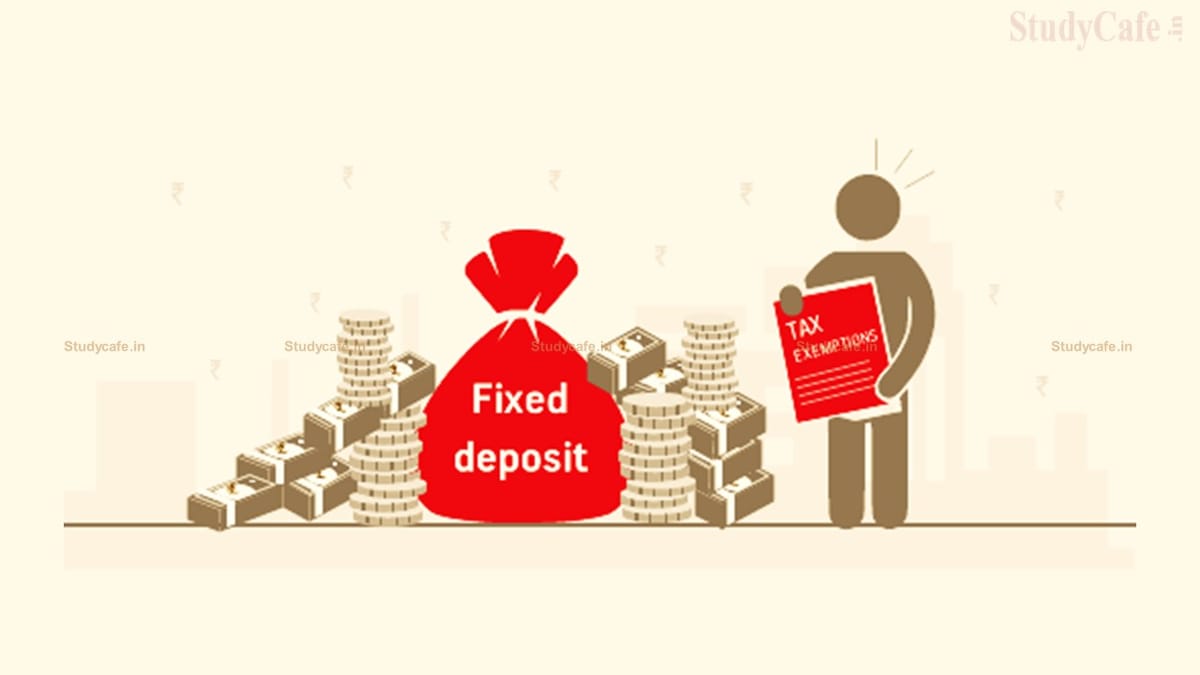Everything You Need to Know About Tax-Saving Fixed Deposit
Deepshikha | Feb 17, 2022 |

Everything You Need to Know About Tax-Saving Fixed Deposit
Fixed Deposits are crucial and popular among investors in India. These are regarded as safe and can provide attractive interest rates. A Fixed Deposit is a safe investment option for risk-averse individuals, with interest rates varying based on the term of the investment.
A fixed deposit is a financial product in which an investor deposits a lump sum amount with a bank for a set length of time at a set rate of interest (say from 7 days to 180 days). The money can be put to work for ten years. The investor will get the original investment amount plus interest after the term.
It’s a sort of Fixed Deposit that qualifies for a tax deduction under Section 80C of the Internal Revenue Code of 1961. A fixed deposit calculator can be used to calculate the possible returns from this term deposit. The fixed deposit calculator is free to use and may be found online.
Offline and online options are available for investing in a tax-saving FD. Offline investment can be done by going to any bank and investing in a tax-saving FD. The internet banking feature can be used for online investment.
Premature withdrawals are not possible with tax-saving FDs. Furthermore, a fixed deposit account cannot be used to secure a loan (bank tax saver fixed deposits). The investment in a Tax Saving Fixed Deposit has a minimum lock-in term of 5 years, and the interest generated is taxable at the applicable slab rate.
You can get a tax break if you put money into a tax-saving fixed deposit. Section 80C of the Income Tax Act allows for a tax deduction of up to Rs.1.5 lakhs.
When investors put money into bank fixed deposits, the money is locked in for a set length of time. On a cumulative basis, an investor can earn interest on the amount invested.
Fixed deposits come in a variety of tenures, allowing for a variety of investment alternatives.
As a result, an investor can hold a 90-day fixed deposit and a 180-day fixed deposit. This increases the amount of interest earned and provides liquidity if needed.
Fixed deposits pay out more money than savings accounts at the bank. Tax exemption is available for investments in bank tax saver FDs. Under Section 80C of the Income Tax Act, 1961, fixed deposit income tax exemption is allowed up to Rs.1.5 lakh.
Interest gained on them, on the other hand, is taxed at the individual’s income tax bracket rates. Furthermore, if the interest income on tax-saving fixed deposits reaches INR 40,000, TDS of 10% is deducted (INR 50,000 for senior citizens).
An investor can also start a tax-saving FD account with the same bank where he or she already has an account. An investor can start the process by speaking with a relationship manager or going to the bank’s website.
You can put your money into a tax-saving FD given by a bank where he doesn’t have a savings account. The investor will be required to complete your Know-Your-Customer (KYC) requirements in this section.
You can easily start a tax-saving fixed deposit with that bank once you’ve completed the KYC requirements.
Investing in a tax-saving Fixed Deposit can be done both online and offline. The following are the documentation needed to open a tax-saving fixed deposit account:
In case of any Doubt regarding Membership you can mail us at contact@studycafe.in
Join Studycafe's WhatsApp Group or Telegram Channel for Latest Updates on Government Job, Sarkari Naukri, Private Jobs, Income Tax, GST, Companies Act, Judgements and CA, CS, ICWA, and MUCH MORE!"